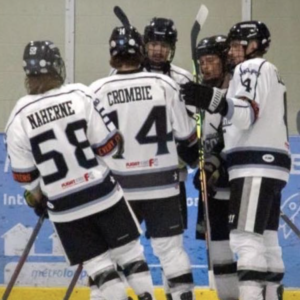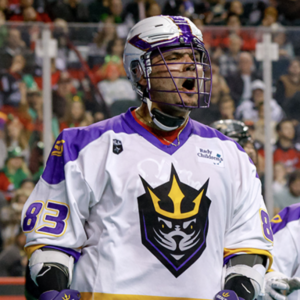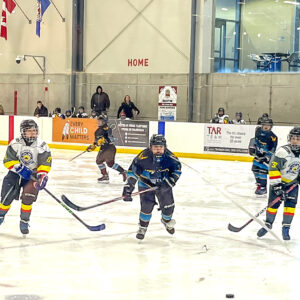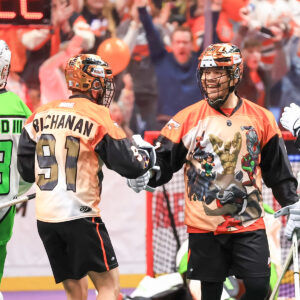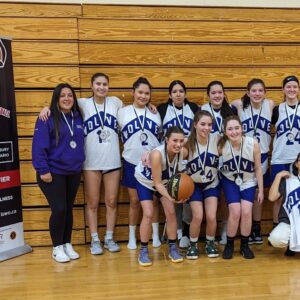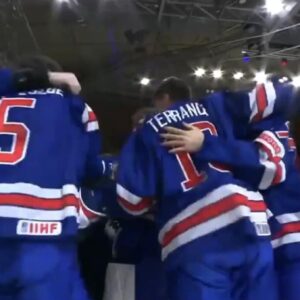
The 2020 Olympics were put on hold.
An estimated 10,000 athletes were scheduled to march into Tokyo’s national stadium for the opening ceremony of the Summer Olympics, with about 600,000 overseas spectators that had been expected to flock to the Japanese capital for the world’s largest sporting event at the end of July.
Following the Olympic freeze, the North American Indigenous Games closed their seasons, which annually welcomed over 5000 athletes competing in 16 different sports and the Little Native Hockey League cancelled its arena bookings, which would have seen 210 teams and over 2000 players.
Anthony Battaglia, a Postdoctoral Fellow and Sessional Lecturer at the University of Toronto within the Faculty of Kinesiology and Physical Education and the Sport and Performance Psychology Laboratory, explained that there are many ways to tackle the onset of loss of motivation at home during the pandemic.
“I have worked with a few athletes during the pandemic who have struggled with motivation,” said Battaglia. “The way in which I like to approach these challenges is to first identify potential positives and then reframe goals.”
“Obviously, removal from sport practices and training is not ideal, but there are some positives in the sense that very rarely do athletes have time to actively develop mental skills an the mental side of sport that may help them with performance.”
Battaglia said that one of the positives that the pandemic offers is time for athletes to practice mental skills.
“I often get athletes to formulate new goals and more specifically, I emphasize process goals—these are the small steps or goals that allow us to achieve larger goals. The good thing about process goals is that they are based on controllable thoughts or actions related to performance execution and provide a road map for larger performance (e.g., scoring x number of goals) and outcome goals (e.g., winning a championship). For example, a process goal would include setting personal training goals per week (e.g. I will work out three times this week to improve my endurance). This helps athletes to stay in the moment and focus on small accomplishments because it is very easy for athletes to get discouraged when all they think about is the larger goals, such as returning to sport or winning, with no sense of direction of how this can be achieved.”
Another thing that Battaglia explained is that he likes to reframe thinking as many athletes report having negative thoughts such as “I can’t do this, when I come back I won’t be as good” which reduces motivation.
“I challenge the athletes to engage in critical reflection exercises; specifically, I ask them to record negative thoughts they have and to spend time reframing how each negative thought can be worded positively. Example: ‘I’m going to lose my skill’ might be reframed to ‘Other athletes are in the same position, so in the meantime, I can work on other skills while I am at home to keep me prepared.’”
Battaglia then spoke on his thoughts about “aging out” of a certain age division and how it can affect athlete mindset.
“I cannot comment on the dynamic of any given sport but what I can speculate on is that this is a difficult reality that unfortunately many youth will be forced to confront. For perspective, we know that athletes who leave sport on their own accord often report more positive experience post-sporting career as opposed to athletes who do not have a choice in leaving sport such as sustaining an injury or in this case having their last year taken away, they may experience more negative adjustments.”
“There is no clear solution to this particular problem as COVID restrictions the past year have been beyond the athletes’ control. Again, many youth may adjust fine and may have already shifted their interests to focusing on school, work, and more, however there will be other youth who have a difficult time dealing with the loss of their final year especially those who heavily associate their self-worth with sport. The challenge in these situations again is having the athletes develop strategies and a plan to overcome challenges and shift their focus. For example, an athlete who lost their last season, although not ideal, it would be beneficial to discuss goals and steps that can be taken to potentially maintain sport involvement in their lives, such as playing recreationally with friends or in pick-up leagues. In other cases, it would be beneficial to have the youth write down what other areas in life they excel at. This helps them to actively recognize that they are more than just an athlete and may help to ease the transition into other aspects/important areas of life.”
Nick Alderton, a Mental Performance Consultant and Professional Member, Canadian Sport Psychology Association working out of Thunder Bay, Ontario explained that sports are often a way to cope with stress.
Alderton explained that is there is a loss of motivation to stay engaged during the pandemic, he reminds athletes that this situation is out of they control and no fault of their own first.
“It’s easy to get caught up thinking about what has been lost, but it’s important to recognize that this is out of their control,” said Alderton. “Accepting the current reality is an important first step. We do have control over our individual response to the situation and how we choose to use this time.”
Alderton advised that adapting athletes training and developing new short-term and long-term goals so they can keep connected and progressing in their sport is key.
“This will look different for every athlete, because we all have different living situations. They can start by thinking about what areas of their game can be improved and the positive impact this would have for them when the pandemic is over. If they can keep progressing in their skills for when sports competition returns this it can help them stay motivated.”
“They can find ways to engage in individual technical skills training, fitness, nutrition, mental training, and strategy. I encourage athletes to use whatever resources they have available and find creative ways to keep working on their games. I also encourage them to stay connected and share this with their teammates and coaches through video chats, phone calls, texts, etc. Let them know what they’ve been working on and how they are improving. Staying in regular contact can help them manage the isolation and stay motivated. It can also motivate their teammates and provide something positive to talk about.”
Many sports organizations are in the process of rolling out Return to Activity plans for this year, which Battaglia commented on as “promising.”



